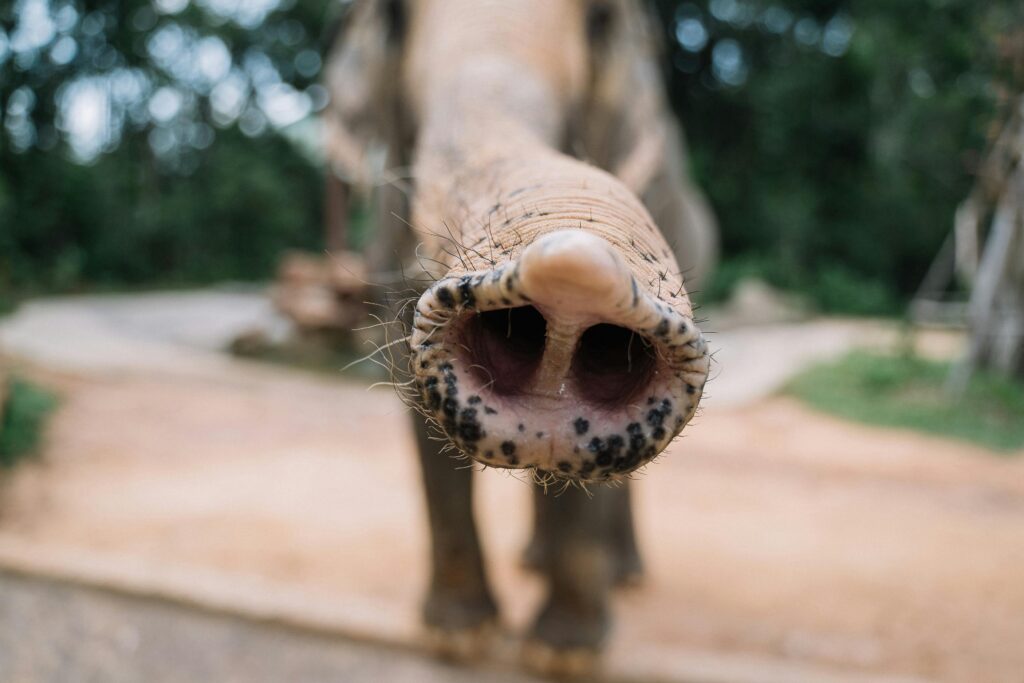
The Majestic African Elephant: Special Characteristics, Abilities, Weaknesses, and Fascinating Facts
The African elephant stands as an unparalleled marvel of the animal kingdom. Towering over most other creatures with its colossal size and remarkable intelligence, this gentle giant is deeply ingrained in the cultural and ecological fabric of Africa. Here, we explore the unique characteristics, extraordinary abilities, vulnerabilities, and fascinating details about this magnificent species, offering an in-depth look into why it deserves admiration and protection.
Special Characteristics of the African Elephant
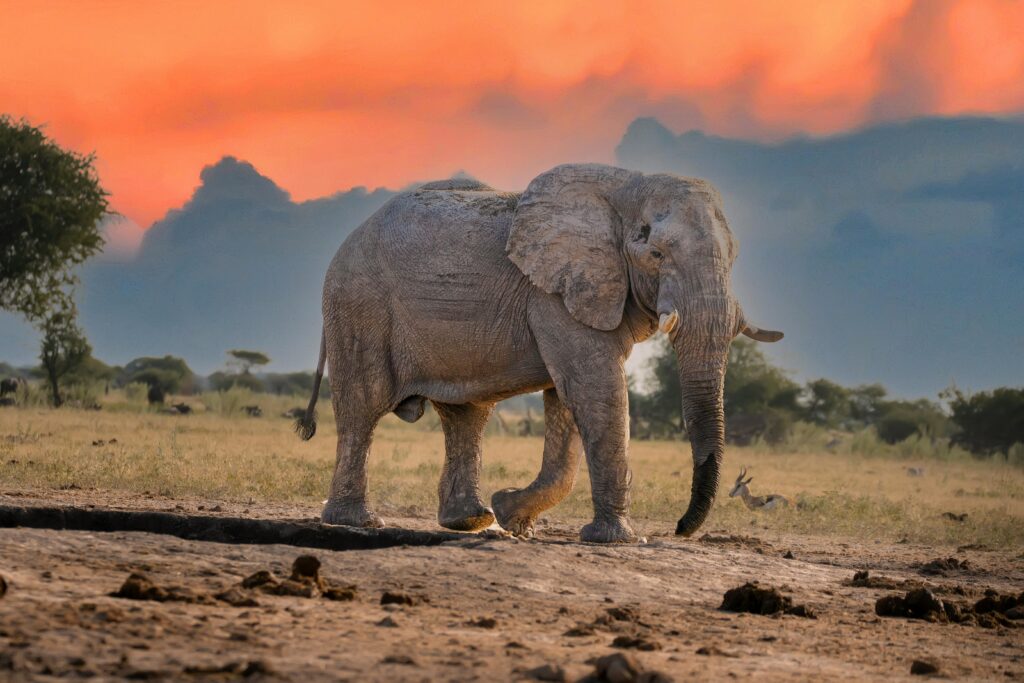
Unmatched Size and Majestic Presence
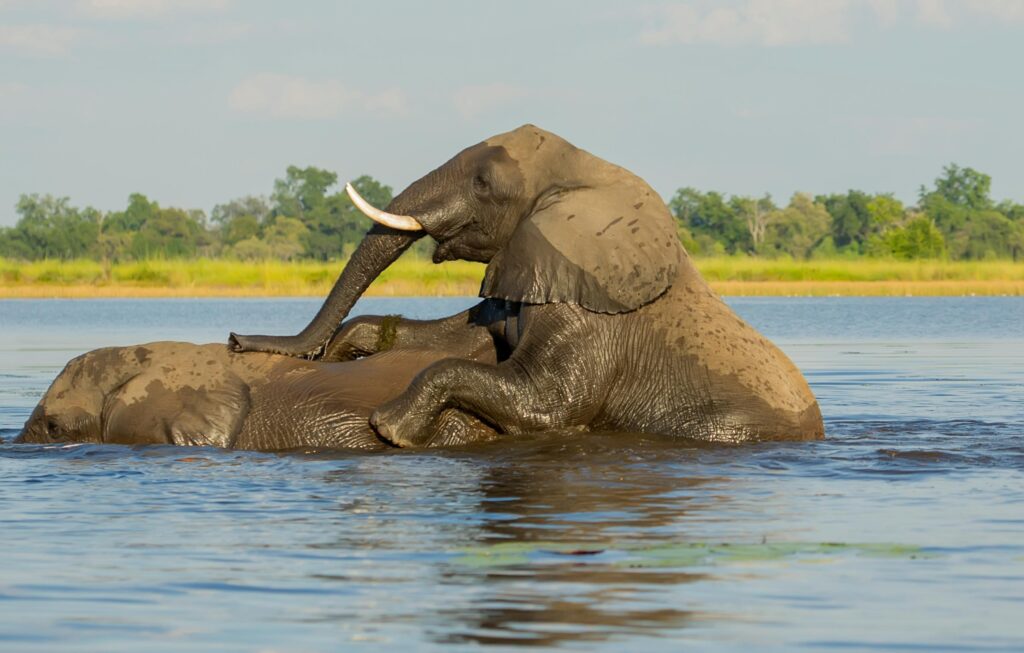
The African elephant is the largest animal on Earth.
- Adult males, known as bulls, can reach heights of up to 4 meters (13 feet) and weigh between 4,500 to 6,800 kilograms (10,000 to 15,000 pounds).
- Females, though smaller, stand at an impressive 2.5 to 3.5 meters (8 to 11 feet) tall and weigh between 2,700 to 3,600 kilograms (6,000 to 8,000 pounds).
Their size is matched by their strength, capable of carrying or moving weights up to 900 kilograms (2,000 pounds).
The Iconic Trunk
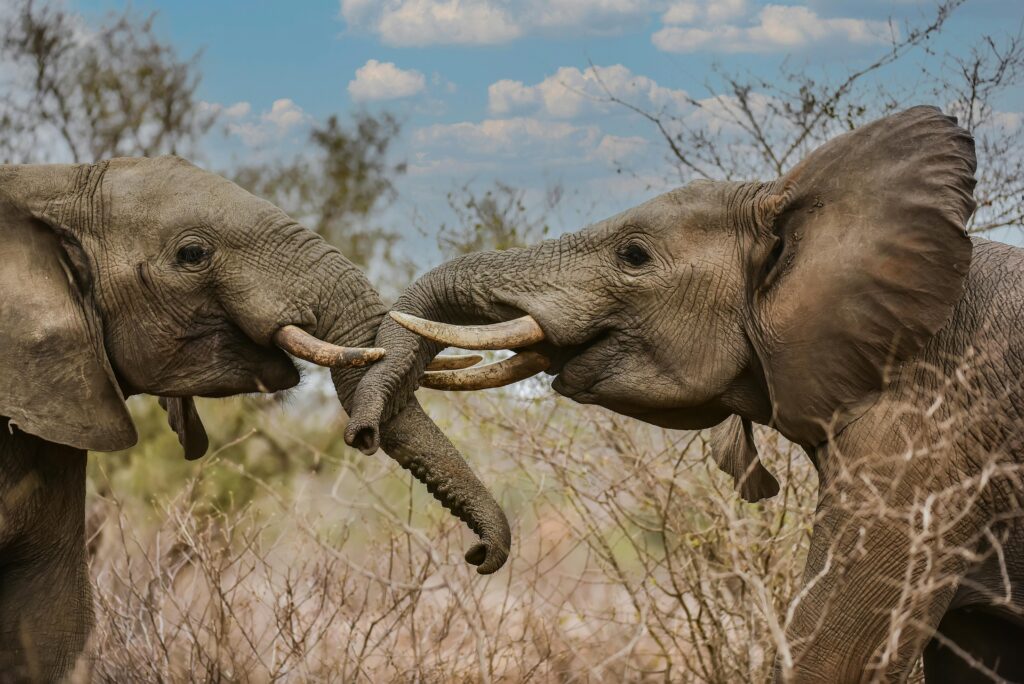
The elephant’s trunk is one of its most versatile tools, containing over 40,000 muscles. This prehensile appendage enables them to:
- Drink up to 190 liters (50 gallons) of water daily.
- Grasp small objects like fruit or delicate flowers.
- Emit sounds for communication ranging from trumpeting to low-frequency rumbles.
Ears Shaped Like Africa
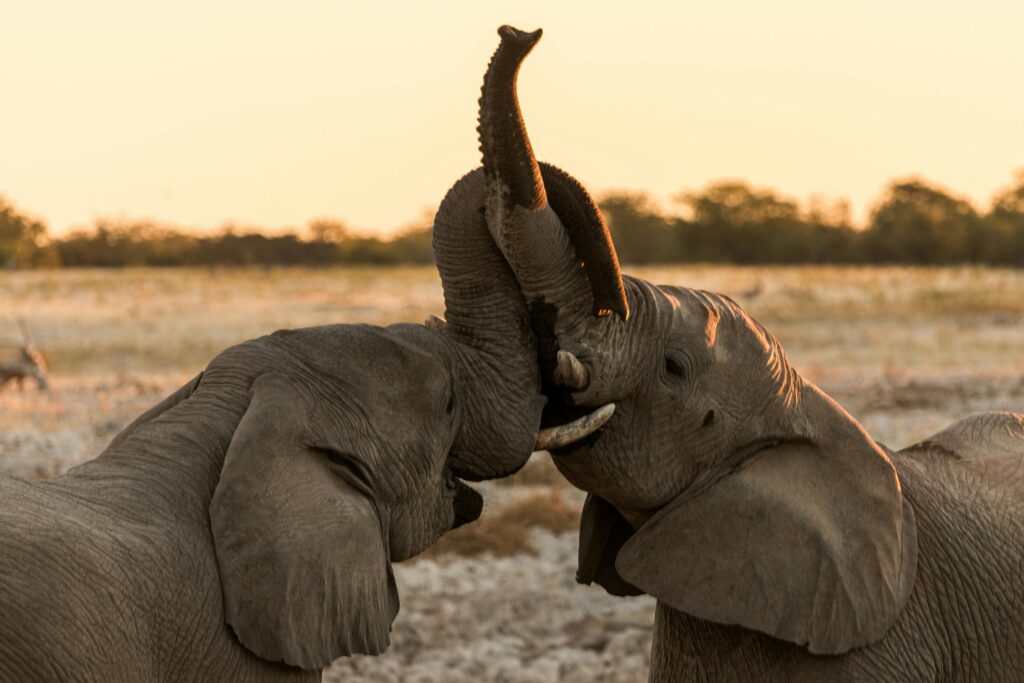
#African Elephant
Their large, fan-like ears serve dual purposes:
- Thermoregulation: The blood vessels in their ears aid in releasing heat.
- Communication: Elephants often use ear movements to signal emotions or warnings.
Interestingly, the shape of their ears resembles the map of Africa.
Magnificent Tusks
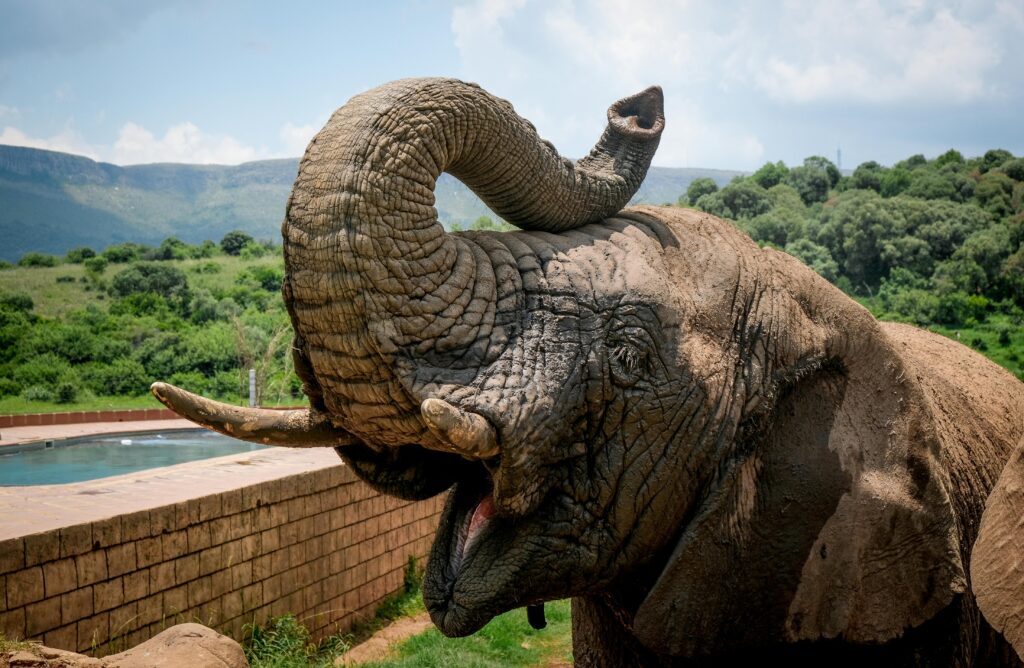
#African Elephant
Both genders of African elephants have ivory tusks, but males’ tusks are significantly larger. Tusks serve as:
- Tools for digging waterholes or stripping bark from trees.
- Weapons for self-defense against predators.
Unfortunately, these beautiful features also make them targets for illegal poaching.
Skin and Wrinkles with a Purpose

Their thick, wrinkled skin helps retain moisture, preventing dehydration in the harsh African sun. Despite its tough exterior, their skin is sensitive to insect bites and sunburn, which is why elephants often indulge in mud baths as a natural sunscreen.
Special Abilities of the African Elephant
Unparalleled Intelligence
These animals are the most intelligent animals on Earth. Their brains weigh up to 5 kilograms (11 pounds), enabling them to:
- Remember distant water sources for decades.
- Exhibit empathy, grief, and joy within their social groups.
- Solve complex problems, such as opening locks or using tools.
Sophisticated Communication
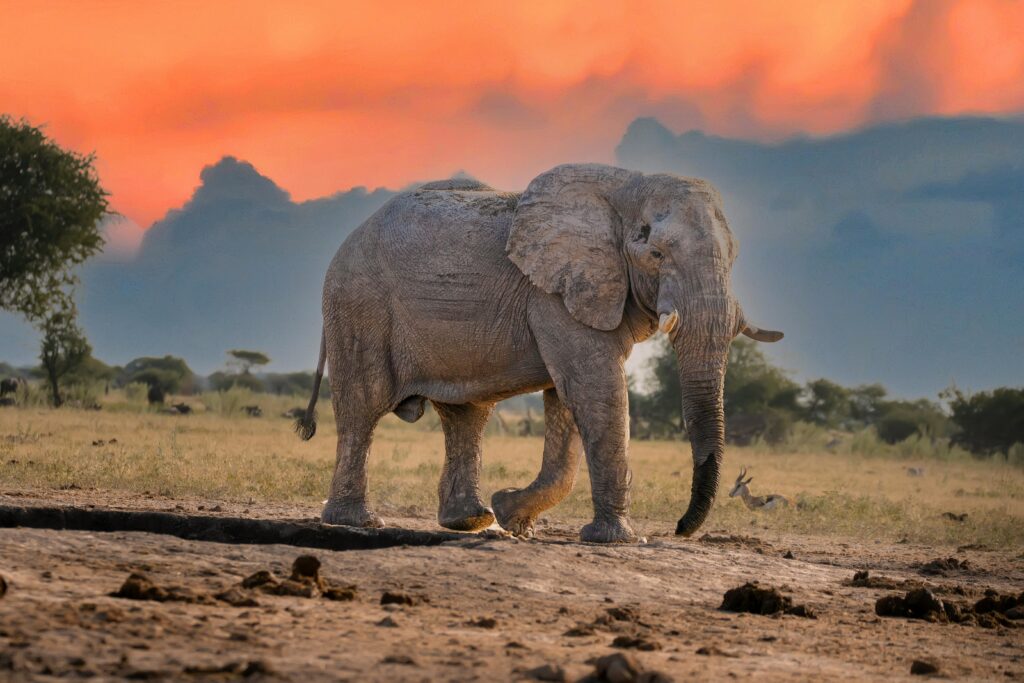
African elephants communicate across vast distances using infrasonic rumbles that travel up to 10 kilometers (6.2 miles). These vocalizations are crucial for:
- Coordinating herd movements.
- Warning of potential threats.
- Maintaining social bonds even when separated.
Ecological Engineers
Known as “ecosystem engineers,” elephants play a pivotal role in maintaining biodiversity. They:
- Create habitats: By uprooting trees, they create clearings that allow sunlight to reach the ground, promoting plant growth.
- Disperse seeds: Their dung contains seeds, fostering plant regrowth across vast areas.
- Maintain water sources: They dig waterholes during dry seasons, benefiting other wildlife.
Weaknesses and Challenges
Human-Wildlife Conflict
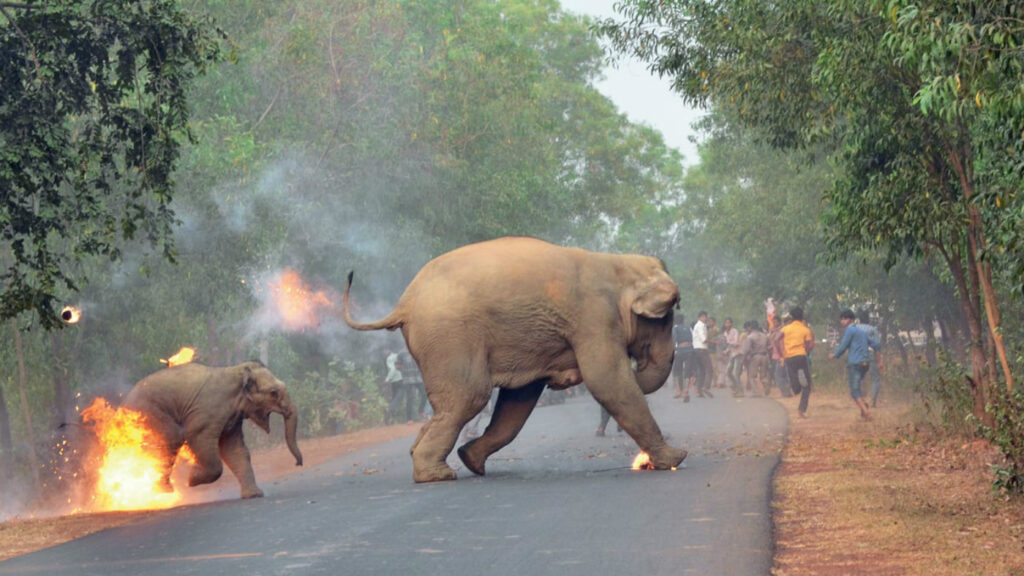
Source:https://thinkwildlifefoundation.com/

Source:https://www.theenvironment.in/
As human settlements expand, elephants often come into conflict with farmers. Crop-raiding by elephants leads to retaliatory killings, worsening their already fragile population.
The Threat of Poaching
Despite international bans on the ivory trade, poaching remains a severe threat. It is estimated that 30,000 African elephants are killed annually for their tusks, causing rapid population decline.
Habitat Loss
Deforestation, infrastructure development, and agriculture reduce the availability of suitable habitats. Fragmented landscapes force elephants into smaller areas, limiting access to food and water.
Climate Change
Rising temperatures and shifting rainfall patterns exacerbate food and water scarcity, placing additional stress on elephant populations.
Fascinating Facts About African Elephants
- Lifespan: These giants can live up to 70 years in the wild, with some females giving birth well into their 50s.
- Matriarchal Societies: Elephant herds are led by a matriarch, usually the oldest and most experienced female.
- Diet: An elephant consumes an average of 150 kilograms (330 pounds) of vegetation daily.
- Swimming Skills: Elephants are excellent swimmers and use their trunks as snorkels in deep waters.
- Minimal Sleep: On average, elephants sleep just 2-4 hours per day, often standing to remain alert to threats.
The Urgent Need for Conservation
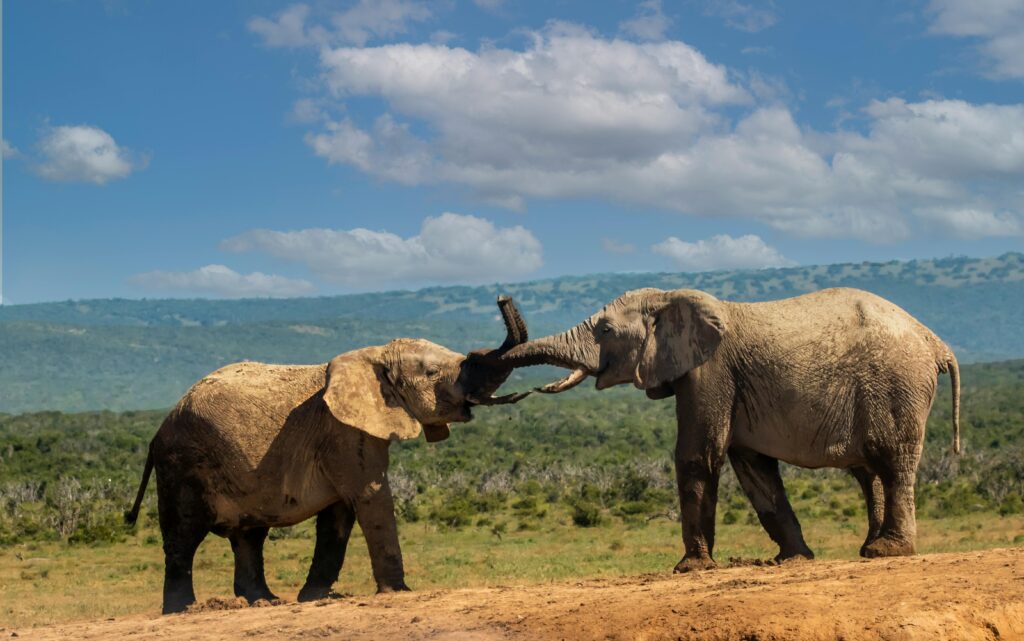
Protecting African elephants is not just about preserving a species; it’s about maintaining the delicate balance of Africa’s ecosystems. Conservation efforts focus on:
- Combatting Poaching: Anti-poaching patrols and technology like drone surveillance are vital.
- Restoring Habitats: Reforestation and establishing wildlife corridors help elephants access essential resources.
- Raising Awareness: Education campaigns highlight the importance of coexistence and the devastating impact of illegal ivory trade.
Together, we can ensure that future generations inherit a world where the majestic African elephant thrives.












